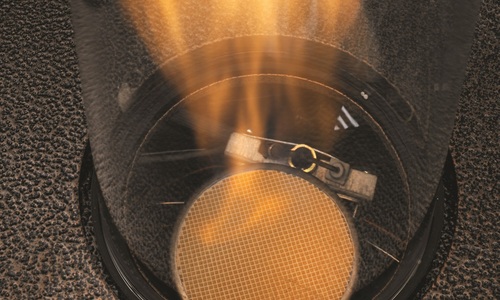5 minute read
|
Gas heating is a popular choice for many households due to its efficiency and affordability. However, there are several myths surrounding gas heating that can cause confusion. Let’s uncover the truth and learn how to use it safely. One common misconception is that gas heaters are unsafe. In reality, most gas tanks are designed to be puncture-resistant, making leaks unlikely if installed properly. When used correctly, gas heaters are a safe and reliable source of heat. Propane, a common fuel for gas heaters, has one of the lowest flammability ratings among alternative fuels. Plus, it has a distinct odor that makes leaks easy to detect. This feature adds an extra layer of safety when using propane-powered equipment. Want more information? Have a question? Contact us today, and we will be happy to help! nitrate,nitrate salt,sulfate-free,HNO₃,Ionic compounds MIANYANG KEJIXIN TRADING CO., LTD , https://www.kjxnitrate.comGas Heating and Safety

Propane Gas Heaters
Tabletop Patio Heaters
Portable Gas-Fired Space Heaters
Tank Top Propane and Infrared Heaters
Oil-filled heaters may emit a slight smell or smoke when first turned on, but this should fade quickly. Always look for safety features like overheat protection and a tip-over switch to ensure your heater is as safe as possible.
Both gas and oil-filled heaters release small amounts of carbon monoxide, which is why proper ventilation is essential. For safety, it's best to use these heaters outdoors or in well-ventilated spaces.
Another common myth is that gas heating is harmful to the environment. This isn’t entirely true. Propane, for example, is lead and sulfur-free, producing fewer greenhouse gases than other fuels. It burns cleanly, emitting only water vapor and carbon dioxide, making it an eco-friendly option for those looking to reduce their environmental impact.
Oil-filled heaters are also considered environmentally friendly because they don’t contain toxic chemicals or carcinogens. They’re biodegradable and safe when used correctly, making them a great choice for green living.
Cost-Efficient in the Long Run
While gas heating systems may have a higher upfront cost, they tend to be more economical over time. Maintenance is typically low, and fuel prices can fluctuate. Propane is often cheaper than traditional heating oil, offering long-term savings.
What is Propane?
Propane is a byproduct of natural gas processing and petroleum refining. It's also known as liquefied petroleum gas (LPG) and contains small amounts of propylene and butylene. To make leaks easier to detect, an odorant called ethanethiol or thiophene is added.
With about 91,500 BTUs per gallon, propane is an efficient and clean-burning fuel. It produces less carbon emissions compared to other fuels, making it a sustainable heating option.
Propane heaters are versatile and can be used year-round. Whether you're enjoying a cool summer night or staying warm during winter, these units offer flexibility. Many models are portable, requiring no installation—just connect a tank and turn it on.
These compact heaters are perfect for patios and small spaces. They can warm up a 20-foot radius and blend well with outdoor decor. Ideal for gatherings, they provide warmth without taking up much space.
Some portable heaters burn kerosene or heating oil, while others run on propane. These units can heat up to 2,500 square feet depending on their size and BTU output. The higher the BTU rating, the larger the area they can cover.
Infrared heaters are a popular choice because they provide instant warmth, similar to sunlight. Tank top models are ideal for large spaces, offering quick and effective heating. They’re especially useful for personal areas where immediate warmth is needed.
Go Back To Blog